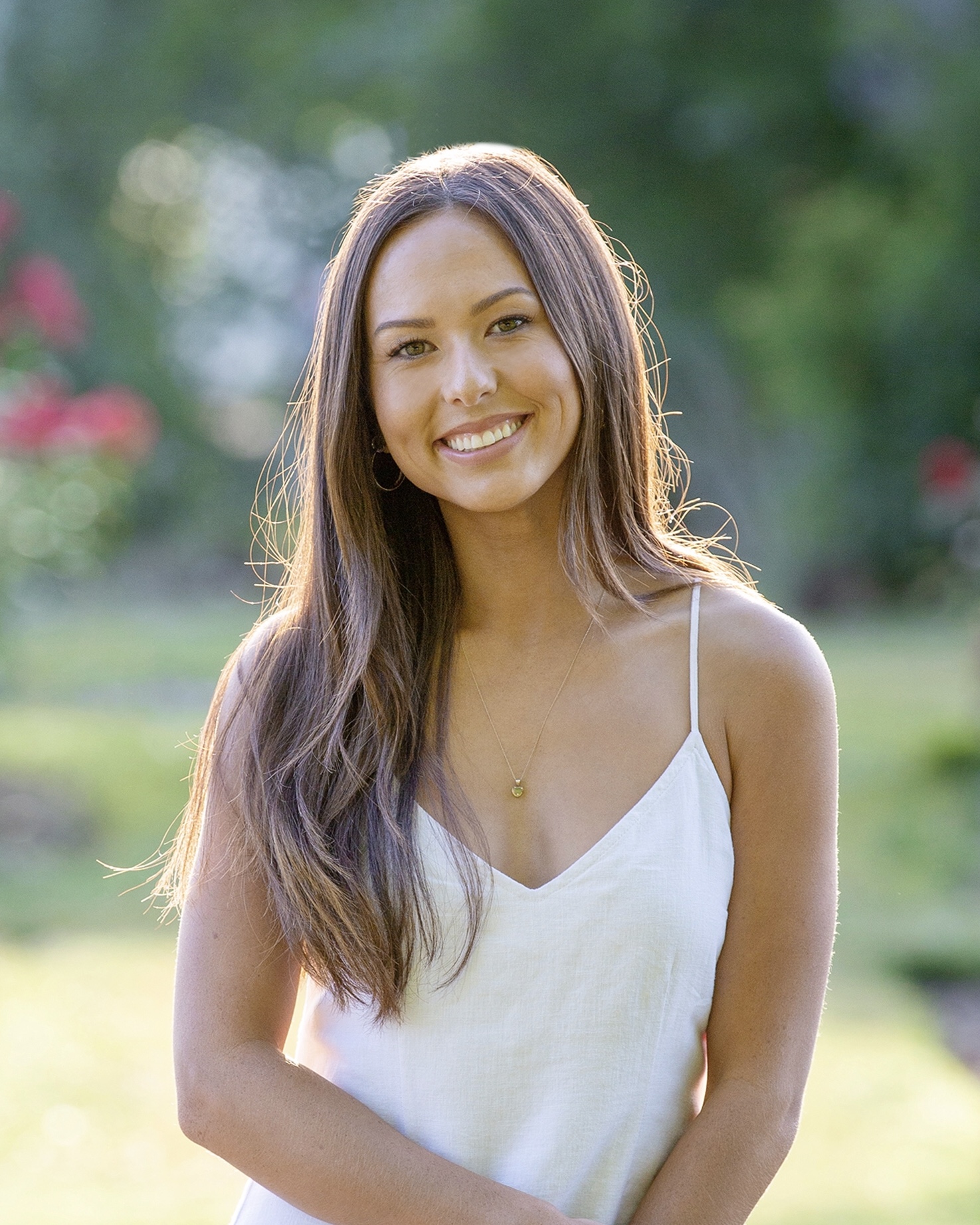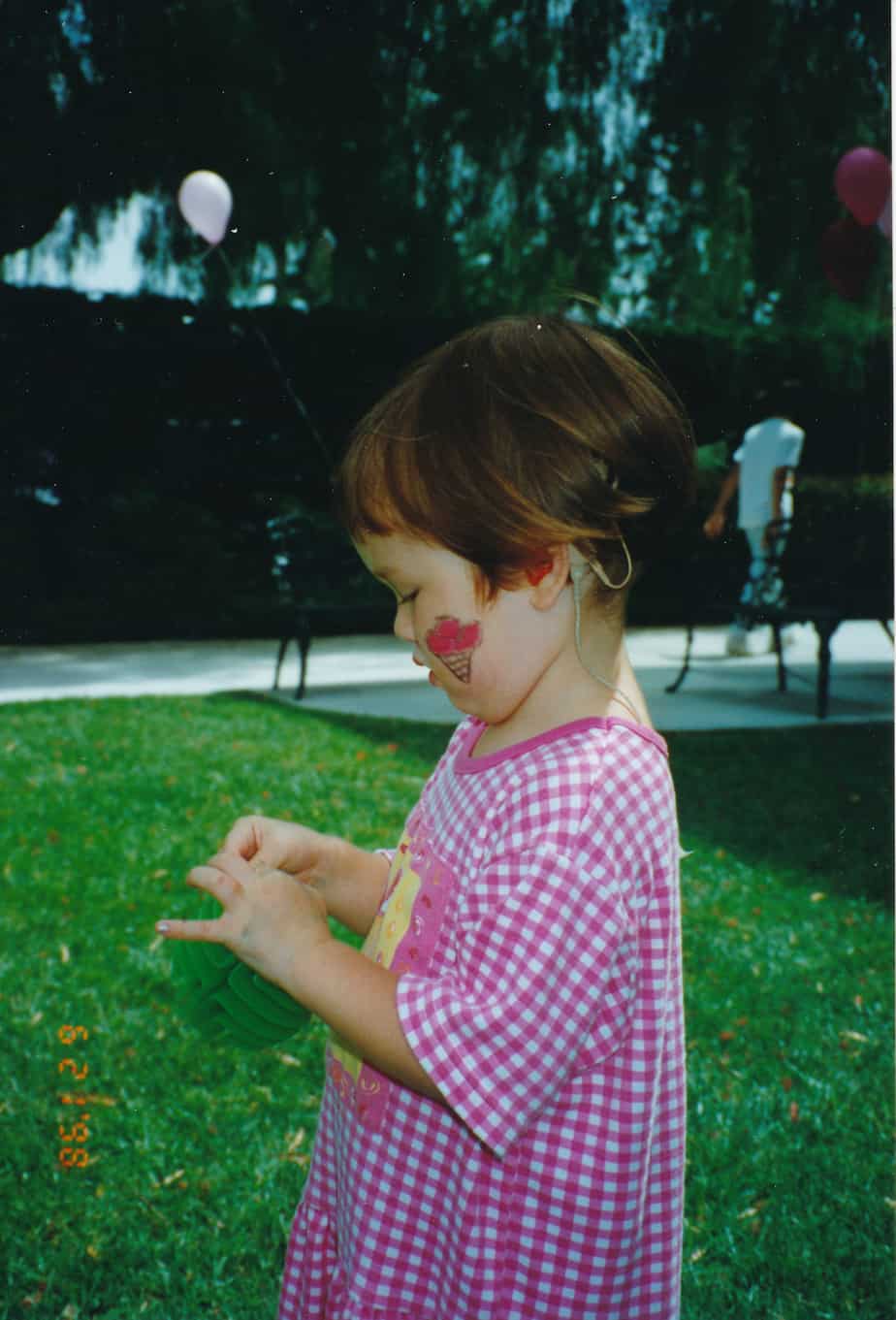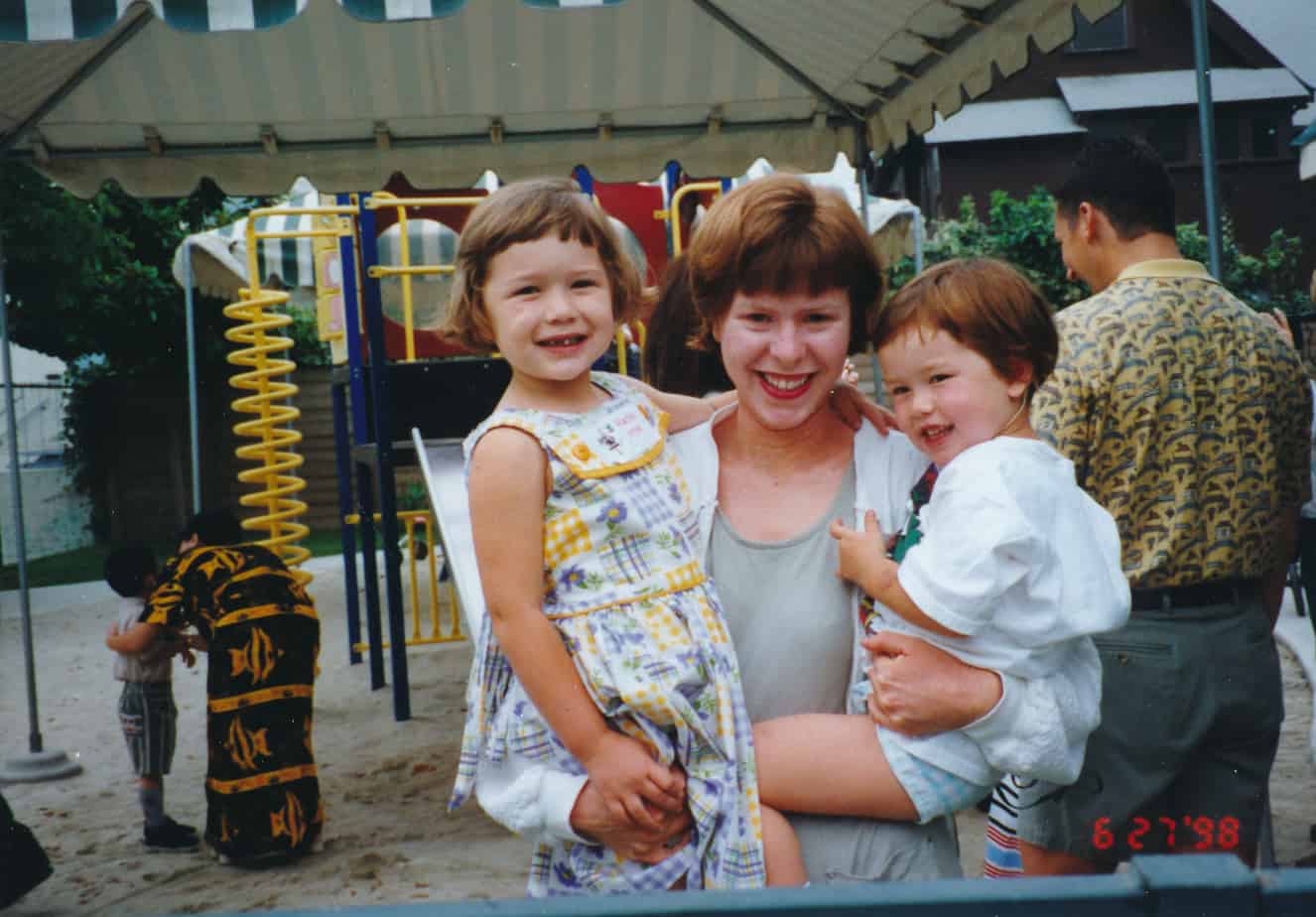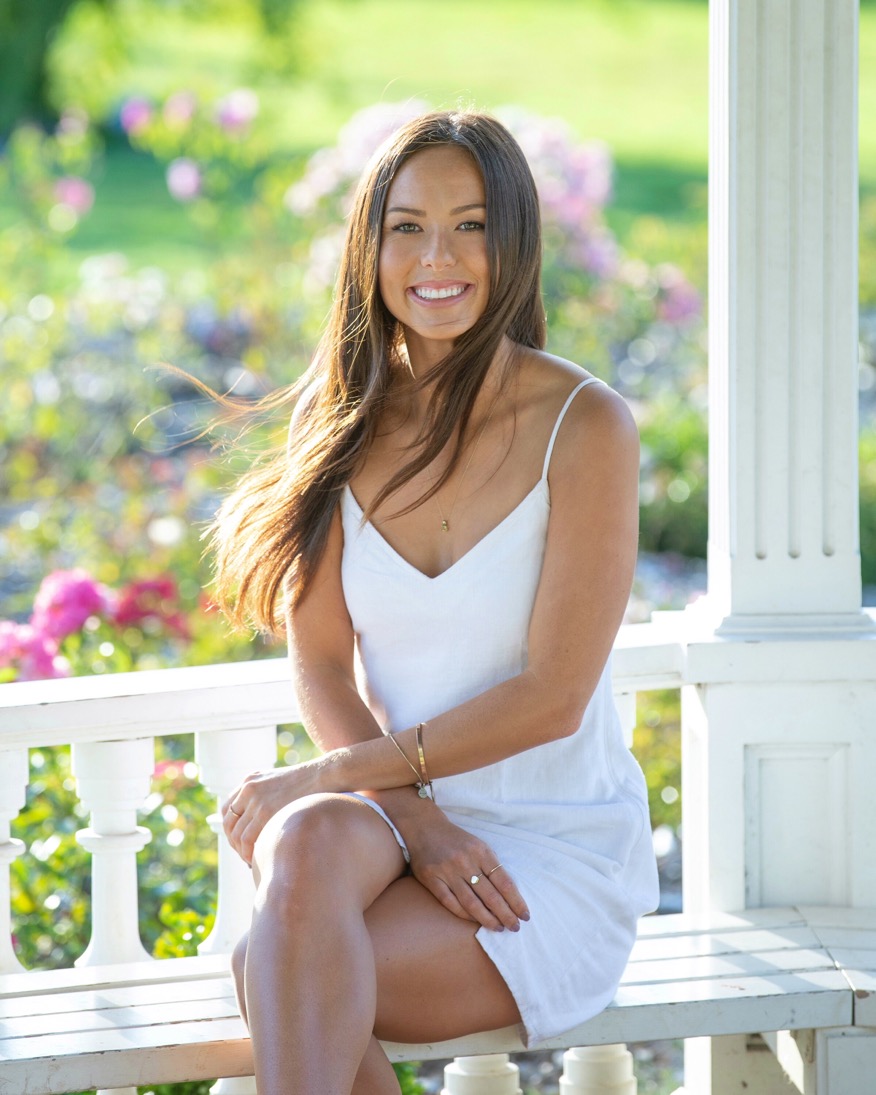Abigail Heringer became a famous contestant on both “The Bachelor”* and “Bachelor in Paradise”* TV shows after revealing she has hearing loss and hears with a cochlear implant. She has since shared her passion for promoting representation in mainstream television of people with hearing loss who, like her, use a cochlear implant to hear and be heard. We sat down with Abigail to ask her some questions about her journey.
 Q: How did you lose your hearing?
Q: How did you lose your hearing?
Abigail: I was born profoundly deaf. My older sister was also born with the same condition, so I was able to be diagnosed much quicker. When we were 2 1/2 years old, we underwent surgery to get a cochlear implant (the youngest age allowed at the time to undergo surgery for a cochlear implant, it is now available for children as young as 9 months1).
Q: How was it decided to get Cochlear as your brand for your hearing implant?
Abigail: It was highly recommended to my mom by different professionals!
Q: How did your family decide on getting you a cochlear implant?
Abigail: My mom said that using just a hearing aid wasn’t efficient enough, so she made the decision for my sister and I to receive a cochlear implant. She has always said that her biggest goal for us was to be able to operate independently and have all the same opportunities as our hearing peers!
Q: Explain what it has been like for you living with a hearing implant.
Abigail: It’s been amazing to be able to have the opportunity to grow up with a cochlear implant. While there are times that are challenging and the countless hours in speech therapy aren’t always fun, it’s been very rewarding. I was able to join a mainstream school early on and rely solely on vocal communication. I’m able to enjoy music and socialize with my friends.
Q: What sound processor do you have and what features do you enjoy?
Abigail: Currently I have the Cochlear™ Nucleus® 7 Sound Processor and I absolutely love all the features that it comes with. I use the Made for iPhone® capabilities23 and love how easy it is to change my processor settings directly from my phone. When flying, I can lower the sensitivity so I can just hear my music through the Bluetooth®4 feature. When using the Bluetooth capability that allows streaming directly to my device, it’s so nice to not have an additional device on my person when working out or running errands.
Q: How does your cochlear implant make a difference in your life?
Abigail: I consider myself a very social person, so I love hanging out with my family and friends. I’m very grateful that my cochlear implant allows me to be a part of social activities such as going out for drinks, concerts and other fun activities. I also was an avid golfer growing up and still love playing whenever I get a chance to! I went to school for Finance and was a financial analyst for several years before my recent career path change.
Q: How does your hearing implant play a role in that your success?
Abigail: I credit a lot of my success and where I am currently at in life to my cochlear implant.
Q: What has it been like being on “The Bachelor” and “Bachelor in Paradise”?
Abigail: It’s been a whirlwind to say the least. I was very lucky to have the opportunity to be a part of both shows and to try and share as much as I could about my story. It was also amazing to feel like I was a part of something bigger than just my journey to find love. To see the outpouring of messages from individuals with similar situations as mine expressing gratitude to see a story similar to theirs showcased on a national level to others has been incredible. Receiving questions about my cochlear implant and experiencing a curiosity from others to learn more about hearing loss and cochlear implants has been very rewarding. Growing up, I never really was exposed to or saw situations similar to mine in pop culture or even romanticized. It was strictly fully hearing individuals. If a deaf character was shown, it would be one that used sign language, a situation that I can’t relate to. I wanted to be able to bring cochlear implants to a national stage and show that users are able to communicate effectively and deal with normal life situations as any hearing individual would.
Q: Why do you feel it is important for people with hearing loss to be recognized on large platforms, like “The Bachelor” and on TV?
Abigail: It’s so important to showcase hearing loss on a show like “The Bachelor” because regardless of someone’s situation, everyone is worthy of love, and it’s time to start showcasing these diverse love stories. I know I’m not alone in feeling that sometimes my hearing loss has impacted my dating life, so I wanted to be able to be part of the conversation that by normalizing hearing loss, we can change how others perceive it. There are so many resources from a technical standpoint (what sound processors are best for you, speech therapy, accessories, etc.) but from a social and dating aspect, it’s not as commonly discussed how to navigate when you have a hearing loss. I hope that by members of the hearing loss community seeing myself on TV, we can normalize conversations with non-members to get rid of any negative or outdated stigmas around hearing loss.
Q: What’s next for you? Future goals?
Abigail: I’m officially retiring from reality TV (haha), but my goal is to continue to raise awareness and normalize conversations around hearing loss! I want to see more individuals like myself make a splash in either TV or other platforms so that we can continue these conversations.
Read how other cochlear implant recipients reacted to seeing Abigail on “The Bachelor”!
5- In the United States, the Cochlear Nucleus Implant is approved for use in children 9 to 24 months of age who have profound sensorineural hearing loss in both ears and demonstrate limited benefit from appropriate hearing aids. Children 2 years of age or older may demonstrate severe to profound hearing loss in both ears. In Canada, the Cochlear Nucleus Implant System (CI500 and CI600 Series) is approved for use in children 9 to 24 months of age who have profound sensorineural hearing loss in both ears and demonstrate limited benefit from appropriate hearing aids. Children 2 years of age or older may demonstrate severe to profound hearing loss in both ears.
- Direct streaming available only with the Nucleus 7 Sound Processor from a compatible Apple® or Android™ device. For compatibility information, visit www.Cochlear.com/compatibility.
- The Cochlear Nucleus 7 Sound Processor is compatible with iPhone, iPad and iPod touch. Apple, the Apple logo, FaceTime, Made for iPad logo, Made for iPhone logo, Made for iPod logo, iPhone, iPad Pro, iPad Air, iPad mini, iPad and iPod touch are trademarks of Apple Inc., registered in the U.S. and other countries. App Store is a service mark of Apple Inc., registered in the U.S. and other countries.
- The Bluetooth® word mark and logos are registered trademarks owned by Bluetooth SIG, Inc. and any use of such marks by Cochlear is under license.
- *© 2021 ABC Entertainment


